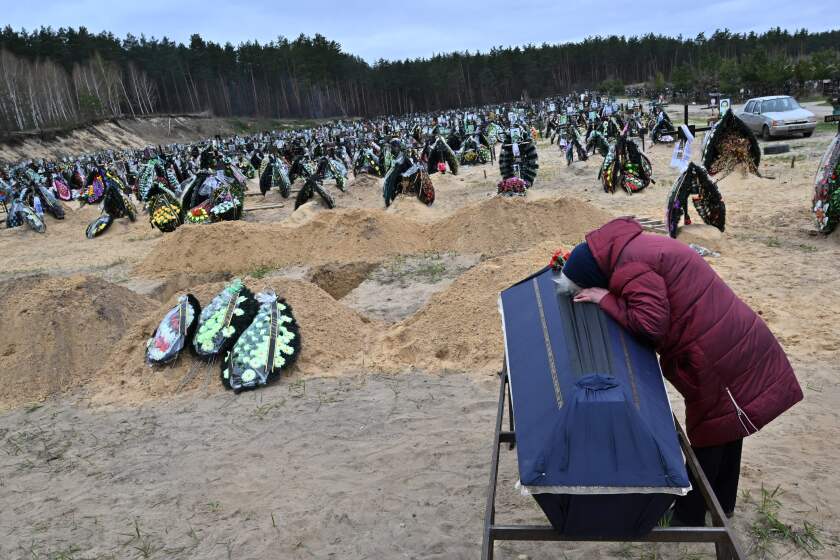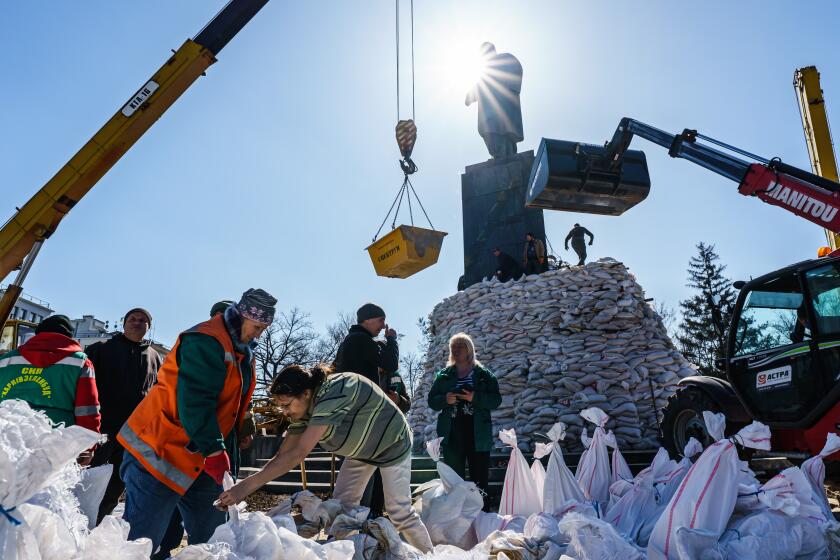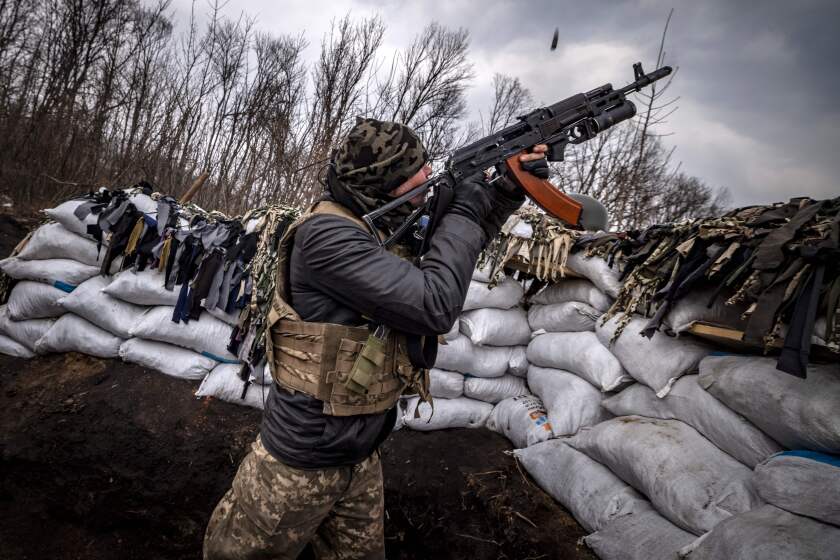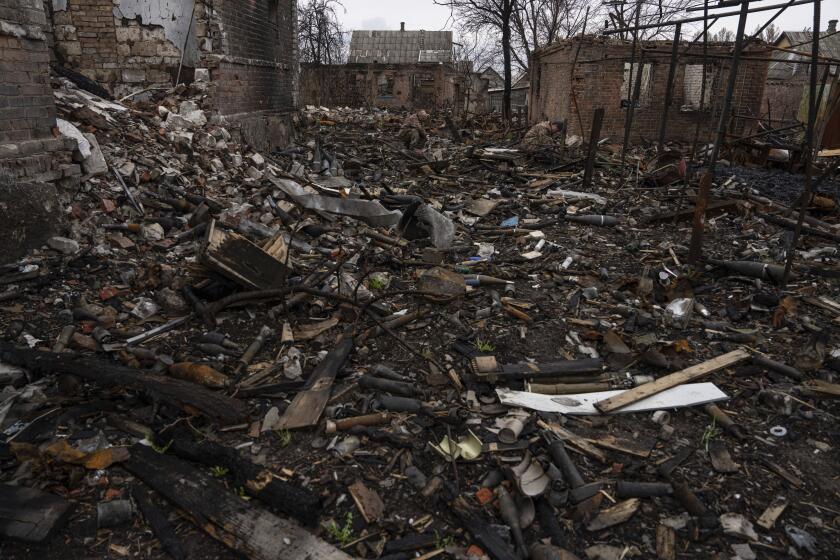How Biden can reassure Ukrainians that they won’t face Russia alone
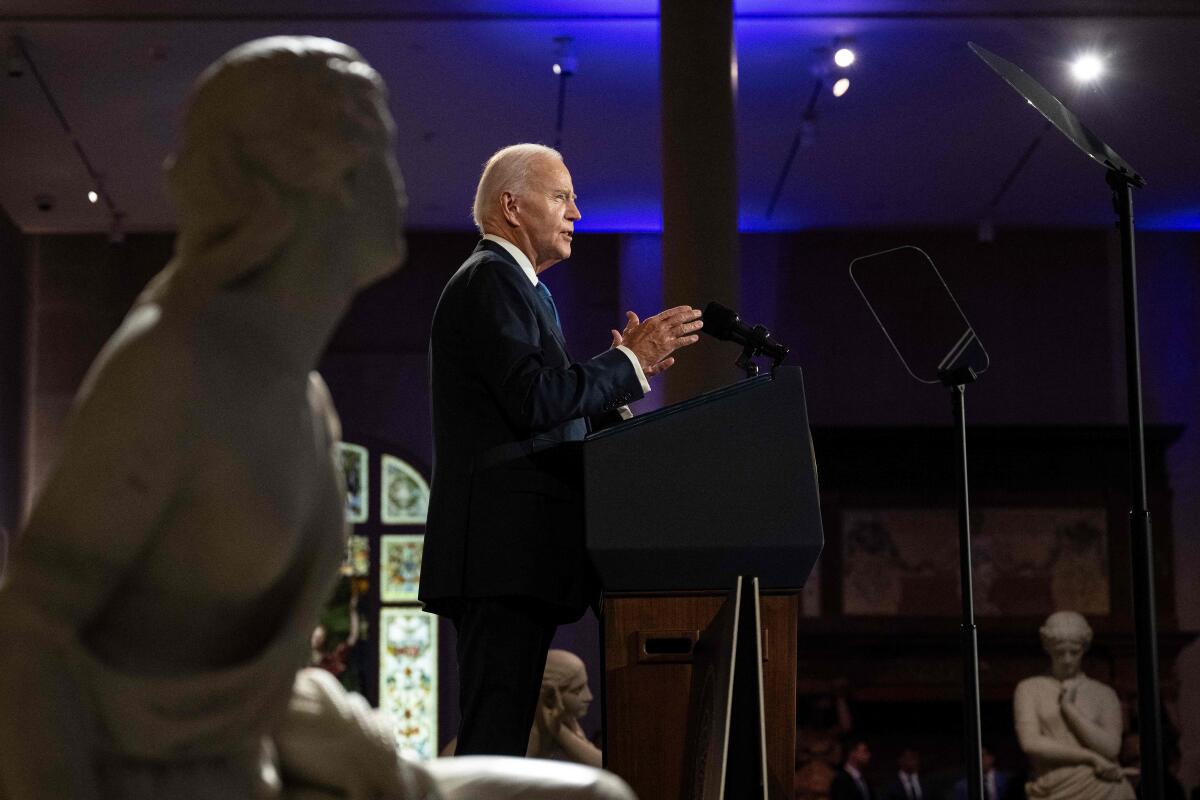
- Share via
When Volodymyr Zelensky, the Ukrainian president, sits down with President Biden at the White House on Thursday, he will surely convey Ukrainians’ gratitude for U.S. support in repelling Russia’s invasion and their kinship with American democratic ideals, but that isn’t the full story.
Despite that support, two-thirds of Ukrainians now see international military aid as insufficient to help them win the war.
As post-Soviet immigrants in the U.S., we were once united, but deep rifts have emerged since Russia’s invasion of Ukraine a year ago.
A year and a half into the full-scale war, a series of tracking polls and focus groups I conduct remotely with Ukraine’s National Academy of Sciences found that 97% of respondents express faith in Ukraine’s military victory — the same as last year.
This continuity is stunning after a long, cold winter of Russian airstrikes that knocked out half of Ukraine’s power grid, dozens of daily Russian infantry assaults along a thousand-mile front line, the slower-than-expected counteroffensive, and mounting personal losses and traumas. The percentage of Ukrainians in our polls who said they had lost family members, friends, housing or property or had been wounded or displaced rose from 70% in 2022 to 80% in 2023. Respondents who have suffered war losses were even more likely than other Ukrainians to voice support for political freedom.
Above all, the war is about Russia trying to gain control over Ukrainian identity and history. In that, Putin has failed.
Although the war is not diminishing their resilience, many Ukrainians are beginning to question how long the U.S. and other allies will continue to support them. Speaking to the U.N. Security Council on Wednesday, Zelensky himself faulted the organization for lack of leadership: “Humankind no longer pins its hopes on the U.N. when it comes to the defense of the sovereign border of nations.”
This week provides two crucial opportunities to reassure the beleaguered nation.
Not supplying these weapons earlier was actually provocative to Putin. That allowed him to wage a missile war on Ukrainian population centers in hopes of beating Ukraine into submission.
Biden’s call for solidarity at the U.N. General Assembly on Tuesday was part of what Ukrainians needed to hear. He pledged to “continue to stand with the brave people of Ukraine as they defend their sovereignty and territorial integrity and their freedom,” and the Assembly broke into applause.
On Wednesday, in a focus group with Ukrainians in Kharkiv and Kherson, I asked the moderator to mention Biden’s speech. Several participants had heard about it and expressed gratitude to the U.S. for its support. Coming from the president of the United States, these kinds of statements are far more than diplomatic gestures. They are also not enough to turn back the Russian invasion.
Reports of torture and rape by the military are all too common in the last century of Russian conflict.
The meeting at the White House provides a chance to instill more confidence in U.S. support. Biden could reassure Ukrainians at this point in the war by allowing Ukraine to acquire a ground-launched missile system from Lockheed Martin. With a 190-mile range, that missile system would let Ukraine strike deeper into Russia, disrupting supply lines and potentially helping to liberate occupied territories.
In the focus group I watched remotely on Wednesday, one man said he was waiting to hear about the Zelensky-Biden meeting because he feels it may be critical to his ability to one day return to his hometown, which he had to flee when Russia invaded. (For 80% of people we polled, victory means regaining all of Ukraine’s lands within the internationally recognized 1991 borders. An additional poll in June yielded nearly identical results.)
The Biden administration should also engage more actively with Congress to support Ukraine and continue a process to unlock frozen Russian assets for use in aid to Kyiv. Estimated at around $300 billion, these assets are more than 10 times the amount of Ukraine aid the Biden administration is requesting from Congress for the next year. Drawing on the funds would require clearing multiple legal hurdles, but doing so would avoid a political debate in Congress over cost to taxpayers.
Finally, the U.S. can galvanize other nations such as India and Mexico to provide military and economic support, including investment in jobs in formerly occupied territories.
Those are the sorts of actions that would back up Biden’s pledge to “not retreat from the values that make us strong.” Those are the sorts of steps Ukrainians desperately want to see next.
Mikhail Alexseev, a professor of international relations at San Diego State University, is the author of “Without Warning: Threat Assessment, Intelligence, and Global Struggle” and principal investigator of the War, Democracy and Society project funded by the National Science Foundation.
More to Read
A cure for the common opinion
Get thought-provoking perspectives with our weekly newsletter.
You may occasionally receive promotional content from the Los Angeles Times.
